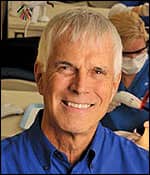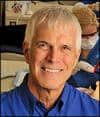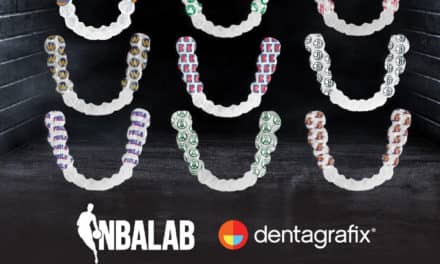by Robert N. Pickron, DDS

My 43 years of experience and my personal treatment of a multitude of patients have taught me more than a few lessons. In addition, my role now as a owner/manager of a multi-doctor practice with more than 3,000 finishes per year gives me a lot of insight on what is working and what is not.
Balance
When we treat with fixed appliances, we overpower the musculature in most cases as we align the teeth. We open deep bites, we expand arches, we flair and retract teeth, all in the name of straightness. When we remove the braces, the musculature takes over and slowly but surely seeks balance in the vertical, horizontal, and sagittal planes. Where the teeth were spaced, spaces will try to open. Where the teeth were crowded, the teeth will try to rotate and overlap. Where the bite was deep or open, the bite will try to revert. The musculature has little chance to adapt in the short time we treat. If you think otherwise, you haven’t been in practice very long or you haven’t looked back. Knowing your limitations is as valuable as knowing your skills.
If you tell a patient something in advance, they will expect it. If you tell them after it happens, it appears to be an excuse. Always tell a patient that the teeth will move after the braces are removed if they don’t wear their retainer every night. It is probably a generalization and overkill, but it will keep you out of trouble in the long run. The patient wants the truth, and that is the truth. The good news is that your teenage patient is likely to move when they graduate from high school, so you will likely be off the hook when they throw the retainer away at college. People leaving town in retention can be a good thing for an orthodontic practice.
Retainers
I have used fixed bonded and fixed cemented retainers; I have used Hawley retainers with and without clasps; and I have used Essix retainers. The best overall retainer today is the clear Essix retainer. It holds the front teeth and prevents rotations, and that is what matters to most patients. It is cheap to make and to replace, and patients like it.
Relapse Happens
No matter what you do or how well you treat, you will have to deal with this important part of the orthodontic practice or move to a new town every 5 years. New patients start and finish, retention patients grow. If you don’t have good protocols, you will spend a lot of time on these patients and they do not want to pay for the time, because they feel that they have already paid you.
Retention Protocols
I recommend that patients wear a removable retainer 24/7 for 1 week and then at night indefinitely. They sign a form stating that they understand this and what will happen if and when they lose or break their retainer. Our Lifetime Guarantee is designed to give them information on what their responsibility is and what we will do when relapse happens. I recommend that they return in 3 months for a checkup and then yearly. We do not charge for the first retention appointment, and I make sure that the retainers fit and that the patient and parent are happy with the results. Subsequent appointments are charged at $50 per visit. At subsequent visits, I take a panorex yearly to check and advise on extraction of wisdom teeth. Patients are not recalled but are advised to call us if they experience a problem. If retainers fit and the teeth are straight and patients are happy, they don’t need to see me. If any questions or discontent arises, I want to see them immediately. My reputation is on the line, and they can do a lot of damage on the street.
To read more articles by and about Pickron, in our online archives.
When a patient has relapse, you don’t adjust the retainer and send the patient out to try to wear it. They did not wear it when it fitted, and they will surely not wear it when it makes the teeth sore. I make it clear that braces move teeth and retainers hold teeth. Face the patient, smile, and offer to retreat with braces, either for a nominal charge or for free. Most patients will reject braces, so you can make them a new retainer to hold what they have. Either way, you have a viable and predictable solution to the problem that you face.
If you cannot satisfy the parent/patient either with additional treatment or a satisfactory explanation, be prepared to give the money back. If you don’t make enough money, charge more. In every business you have losses, and this is one you should expect. It will make you a better orthodontist when you write checks. You learn what to change in your practice so you can minimize the check-writing.
Robert N. Pickron, DDS, is in private practice in Atlanta. He can be reached at








